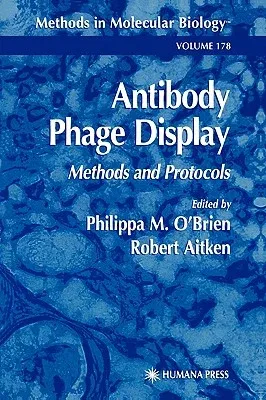The closing years of the 19th century and the start of the 20th century
witnessed the emergence of microbiology and immunology as discrete sci-
tific disciplines, and in the work of Roux and Yersin, perhaps the first
benefits of their synergy--immunotherapy against bacterial infection. As
we advance into the new millennium, microbiology and immunology again
offer a c- ceptual leap forward as antibody phage display gains
increasing acceptance as the definitive technology for monoclonal
production and unleashes new - portunities in immunotherapy, drug
discovery, and functional genomics. In assembling Antibody Phage
Display: Methods and Protocols, we have aimed to produce a resource of
real value for scientists who have followed the development of phage
display technology over the past decade. The founding principles of
phage display have always held an elegant simplicity. We hope that
readers will find similar clarity in the technical guidance offered by
the book's contributors. In meeting our objectives, we have tried to
cover the broad scope of the technology and the key areas of library
construction, scre- ing, antibody modification, and expression. Of
course, the technology cont- ues to advance apace, but we trust that
readers will be able to gage the potential of phage display from our
coverage, that some of its subtleties will emerge, and that our
selection of methods will prove appealing. We are indebted to all the
contributing authors for sharing their expertise with the wider
scientific community.


